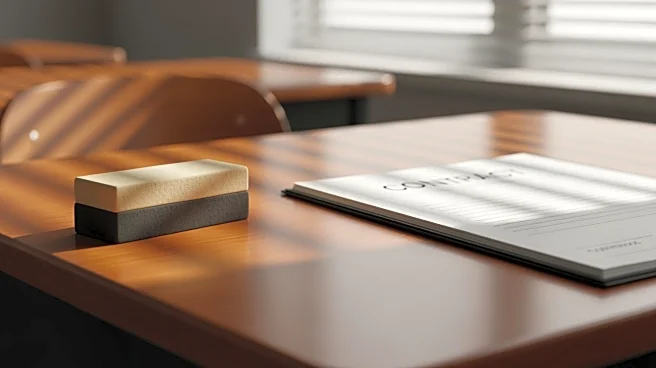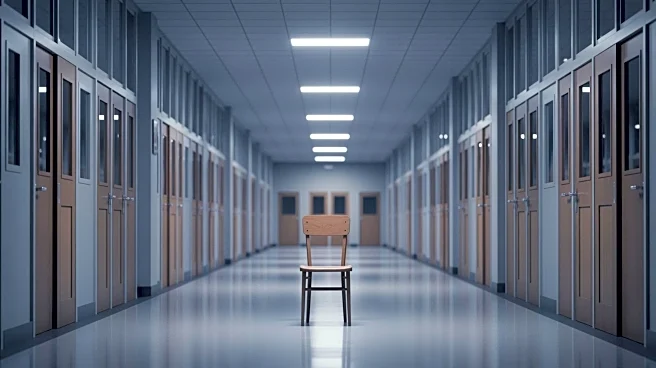What's Happening?
The Peres Center for Peace and Innovation has partnered with Verbit, a transcription and captioning technology company, to improve accessibility at the Israel Innovation Center. This collaboration aims to broaden the reach of Israeli innovation to diverse
audiences both locally and internationally. Verbit's AI-powered captioning technology has been utilized to provide subtitles in multiple languages, including English, Hebrew, Arabic, and Spanish, for over 500 video clips at the center. This initiative supports deaf and hard-of-hearing visitors and enriches the experience for international guests. The Israel Innovation Center, located at the Peres Center's headquarters in Tel Aviv-Jaffa, was launched in 2019 and serves as a hub for showcasing Israel's technological and entrepreneurial achievements.
Why It's Important?
This partnership is significant as it aligns with the Peres Center's mission to bridge cultural divides and promote inclusivity in innovation. By making content accessible in multiple languages, the center is fostering a more inclusive environment that welcomes a diverse range of visitors, including students, educators, diplomats, and corporate leaders. The initiative also highlights the importance of language as a tool for connecting people and cultures, thereby driving innovation and creativity. For Verbit, this collaboration underscores its commitment to expanding global accessibility, reflecting the company's broader goals of making information and technology available to all.
What's Next?
The collaboration between the Peres Center and Verbit is expected to continue enhancing the accessibility of the center's content. As more audiovisual materials are transcribed and captioned, the center may attract an even wider audience, further promoting Israeli innovation on a global scale. The ongoing partnership could also inspire similar initiatives in other institutions, encouraging the adoption of technology to bridge cultural and communication gaps.
Beyond the Headlines
This initiative may have long-term implications for how cultural and educational institutions approach accessibility. By prioritizing multilingual content, the Peres Center sets a precedent for inclusivity that could influence other organizations worldwide. The collaboration also highlights the role of technology in fostering global connections and understanding, potentially leading to more partnerships that leverage tech solutions for social and cultural integration.














